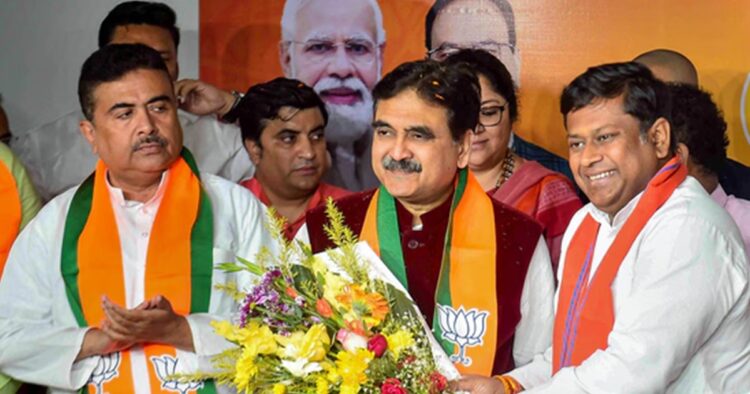The Bharatiya Janata Party (BJP) recently announced its list of Lok Sabha candidates, including 111 new names for the upcoming elections. Among them is Abhijit Gangopadhyay, a former judge of the Calcutta High Court. Gangopadhyay’s entry into politics came just days after his resignation from the prestigious judicial position.
Born in Kolkata in 1962, Abhijit Gangopadhyay completed his early education at Mitra Institution before pursuing law at Hazra Law College in Kolkata. Initially, he served as a West Bengal Civil Service Grade A officer in Uttar Dinajpur district before transitioning to a career in private practice as a state lawyer in the Calcutta High Court.
Gangopadhyay’s judicial journey saw significant milestones as he rose to become an additional judge in 2018, eventually being appointed as a permanent judge two years later. However, his tenure was not devoid of controversy. In April last year, he sparked a heated debate by discussing a case related to the ‘school jobs for cash scam’ in an interview with a TV channel. His remarks, particularly regarding the alleged involvement of TMC general secretary Abhishek Banerjee, drew criticism from the Supreme Court, which advised sitting judges against giving media interviews.
The BJP’s decision to field Abhijit Gangopadhyay as a Lok Sabha candidate reflects its strategy to strengthen its position in West Bengal. The Tamluk seat, which Gangopadhyay will contest, has traditionally been a stronghold of the ruling Trinamool Congress, having been held by the party since the 2009 elections. The move signals the BJP’s intent to challenge the dominance of the TMC in the region.
In addition to Gangopadhyay’s candidacy, the BJP also announced 19 more candidates from West Bengal. Notably, Dilip Ghosh, the current MP representing Medinipur, has been shifted to Bardhaman–Durgapur constituency, while the incumbent S S Ahluwalia has been dropped from the list. These strategic changes indicate the BJP’s efforts to recalibrate its electoral lineup for the upcoming polls in the state.
Abhijit Gangopadhyay’s transition from the judiciary to politics and his subsequent nomination as a BJP candidate exemplify the intersection of law and governance in Bharat’s electoral landscape. As the Lok Sabha elections draw near, the political dynamics in West Bengal are poised for a significant shift, with parties vying for supremacy in one of the country’s key battleground states.

















Comments